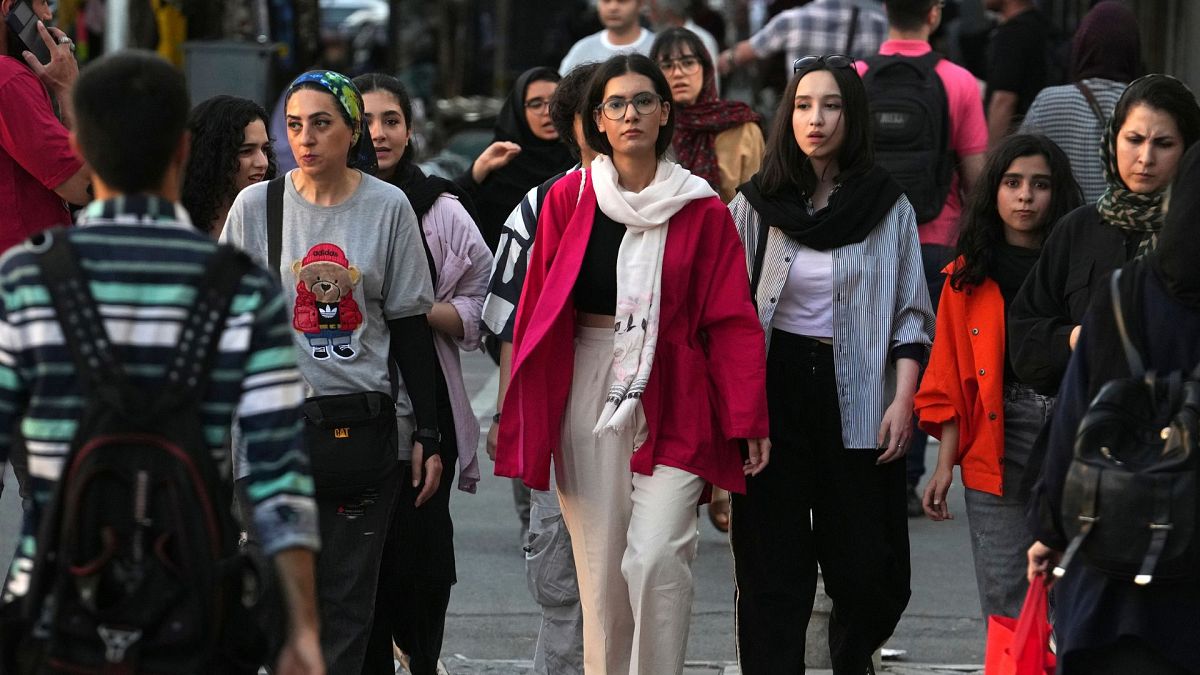Iran has paused the implementation of a new, stricter law requiring women to wear the hijab, an official said, with many observers believing that the bill could have sparked mass protests similar to those that erupted after the 2022 death of Mahsa Amini.
The controversial law, approved by Iran’s parliament in September 2023, will not be sent to the government this week as planned, according to Shahram Dabiri, vice president in charge of parliamentary affairs. The development effectively means that Iran has halted enacting the legislation.
“According to the discussions held, it was decided that this law will not be referred to the government by the parliament for now,” Dabiri told the pro-reform Ham Mihan daily this week.
The decision to delay the law — which imposes harsher penalties for women refusing to wear the hijab and for businesses that serve them — was made by senior executive, legislative, and judiciary bodies, according to Dabiri.
It is currently “not feasible to implement this bill,” he added, without giving further details.
Had the bill passed to the government, Iran’s reformist President Masoud Pezeshkian would have had little room to manoeuvre. By law, he’s required to endorse bills within five days, after which they take effect in 15 days. The president has no authority to veto bills.
Pezeshkian could potentially appeal to Iran’s Supreme Leader Ayatollah Ali Khamenei, who has the ultimate authority on state matters, to intervene.
If the bill had been enacted, the president could have also refused to act on the law or instructed police not to enforce it, potentially triggering a constitutional crisis that hard-liners might exploit to weaken his position.
Pezeshkian earlier described the legislation as having “many questions and ambiguities”.
The legislation’s proposed measures include fines ranging from $800 (€760) for first offences to $1,500 (€1400) for second offences, and prison terms of up to 15 years for third offences.
- Iran says nearly half of Tehran wants to drop mandatory headscarf laws
- Iran to take harsher actions against women without hijab
Celebrities and public figures could face confiscation of 8% of their net worth, while businesses serving women not wearing headscarves risk fines or closure.
Travel bans and surveillance measures, including access to private security footage, would also be implemented. The scope of the legislation, set to last three years, is unprecedented even by the standards of the Islamic Republic.
Amini’s death in September 2022, following her detention by the morality police for allegedly not properly wearing her hijab, ignited mass protests.
Tehran denies responsibility for her death, but UN investigators concluded she “was subjected to physical violence that led to her death,” blaming the morality police.
The subsequent crackdown on protests killed at least 500 people and saw more than 22,000 detained.
Since then, Iranian women on the streets increasingly have ignored the existing hijab law, walking in public with their hair uncovered despite the threat of arrest or harassment.

